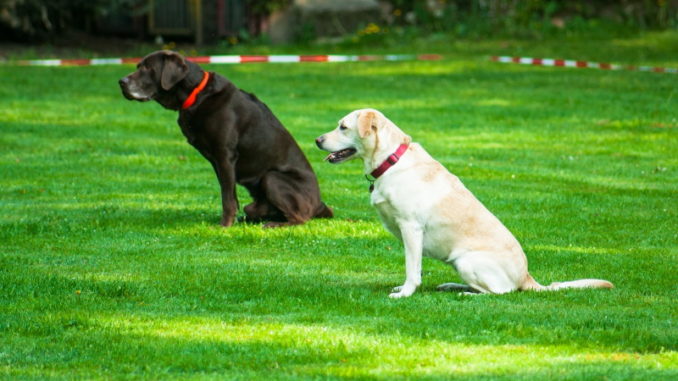
Farmers are diversifying by converting low value farmland into dog exercise parks, following mounting concerns over thefts and livestock attacks.
Dozens of proposals to securely fence off land, ranging in size from small paddocks to several floodlit fields, have been submitted to planning authorities in North Yorkshire and the North-East over the past two years, but recent months have seen a surge in the trend.
Entrepreneurs behind the ventures say the growth in the private dog parks is partly being fuelled by fear of being sued over a dog incident and by owners’ concerns for the safety of their pets, particularly as the pandemic-related spike in demand and price for dogs had led to an increase in pet thefts.
North Yorkshire Police alone dealt with 16 dog thefts between January and July last year, up from five over the same period the previous year.
In December the Dogs Trust warned demand for dogs was at “an all-time high”.
While owners generally pay between £5 and £15 an hour, depending on the level of services and facilities being offered, to visit the parks, those with approved scheme say it has transformed their least profitable field into the most profitable as demand is high.
In her application, which is yet to be decided, to convert a 1.2-acre field in Heighington, near Darlington, Laura Knox said the only use of the land was when the grass was cut for hay.
Commenting on a plan submitted last month to Richmondshire District Council for a dog exercise area off Darlington Road, Richmond, resident Jennifer Henry said: “I think this is an excellent opportunity for people around the area with dogs, my mother lives close by and often has my (nervous) dogs whilst I am at work, this will give us somewhere safe and secure for her to walk all the dogs together.”
Beef farmer Lucy Shepherd, who has had plans to transform fields into dog exercise parks at Hutton Rudby near Stokesley and Kirklevington, near Yarm, said it had taken some 18 months to get the latter scheme approved because the council had not seen one before and they did not understand the concept.
She said: “For some people it will be the first time they have let their dogs off the lead in a really long time. We have a rehomed dog and we can’t let her off the lead unless there’s no pheasants around.
“Livestock is really important to us. At this time of year there’s lots of attacks on lambs, it’s heartbreaking. Dogs should be kept on a lead unless they are in a secure space because it can happen at any point.”
Ahead of opening her ventures, Mrs Shepherd said anyone visiting her fields would need to book online and would be given a gate code which would changed regularly for security. She said any dogs visiting would also need to have been wormed and have up to date vaccinations to maintain hygiene.
“There’s a rise in dog ownership and you hear about dogs being attacked by other dogs when they are in open spaces. I think there’s an increase in dog thefts which is really worrying for people to have them roaming around in public places. The owner knows the dog isn’t going to hurt or attack anyone else nor are they going to be hurt by anybody else. When you’re in a public park you don’t know who is there.”
While many of the planning applications in protected open countryside have been approved due to the rural nature and lack of permanent developments, some of the schemes are being rejected.
One proposal to convert farm fields at Appleton Wiske, near Northallerton, was recently thrown out by Hambleton District Council due to “the likely travel distance of clients to the site and the reliance on the motorcar resulting from the development”.


Be the first to comment